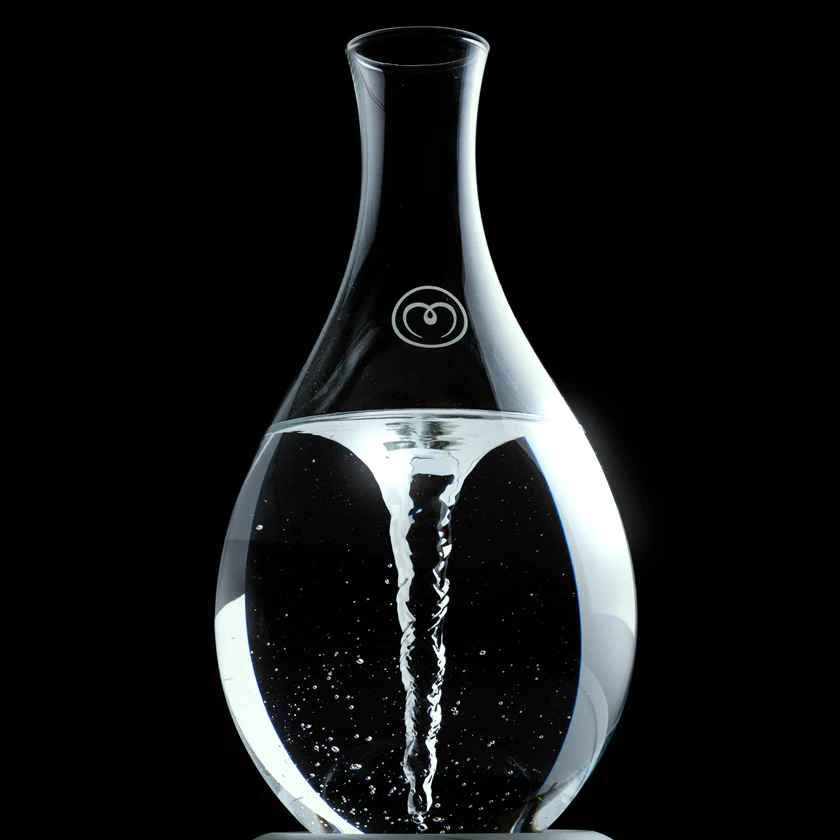Hypertonic, Isotonic & Hypotonic: Different Types of Dehydration
Published October 6, 2024

Imagine a bustling city suddenly deprived of electricity. Chaos ensues: traffic lights go out, businesses shut down, and vital services grind to a halt. This scenario is much like what happens to our bodies during dehydration. Without a steady supply of water—our body's "electricity"—our cells cannot perform their essential functions, disrupting everything from our digestion to our skin health.
Dehydration goes beyond simple thirst; it's a serious condition that affects your entire body. In addition to the lack of water, it can also be caused by an imbalance of minerals, particularly sodium (salt). This causes discomfort in various body parts, including soft tissues, joints, eyes, the digestive system, kidneys, and skin. It can manifest in several forms—hypertonic, isotonic, and hypotonic—each with unique implications for the body's mineral balance.
Who's at Risk of Dehydration?
While anyone can suffer from dehydration, certain groups are more susceptible. Infants, the elderly, individuals with chronic health conditions, and athletes are at a higher risk. Everyday life activities, such as insufficient water intake to compensate for losses from physiological processes, changing weather conditions, and excessive physical exercise, can lead to dehydration. Additionally, during illness, symptoms like vomiting and diarrhea can exacerbate fluid loss.
Did you know?
Mild dehydration can cause symptoms like dry mouth, fatigue, and headache, but severe dehydration can lead to dangerously low blood pressure and elevated heart rate.
» Learn more about the connection between headaches and dehydration
What is Hypertonic Dehydration?
This form of dehydration occurs when the body retains more salt than water, leading to high sodium levels in the extracellular fluid, causing cells to shrink. Common causes include low water intake, excessive sweating, certain medications like diuretics, and illnesses causing diarrhea or vomiting. Children with stomach flu and people using laxatives are particularly vulnerable. High-salt solutions can also contribute to hypertonic dehydration if not managed correctly. Severe cases may require hospitalization, where dehydration can be treated with hypotonic fluids to increase water intake.
Symptoms of hypertonic dehydration can include:
- Severe thirst
- Restlessness
- Fatigue
- Muscle cramps
- Low blood pressure
What is Isotonic Dehydration?
Isotonic dehydration arises when the body loses equal amounts of water and sodium. This type of dehydration is less aggressive than hypertonic dehydration and can be triggered by several factors, including the loss of isotonic fluids through the kidneys, skin (especially in cases of burns), or the gastrointestinal tract.
For example, gastroenteritis, a condition causing vomiting and diarrhea, can be a major culprit in causing isotonic dehydration. Similarly, excessive sweating induced by vigorous exercise, particularly in humid weather, can lead to this form of dehydration.
If not properly managed, isotonic dehydration can have serious consequences. One significant risk is kidney injury resulting from muscle breakdown. Moreover, severe water loss from the blood can lead to lactic acidosis, a condition where the body produces too much lactic acid. Understanding and addressing these risks is essential in managing isotonic dehydration effectively.
What is Hypotonic Dehydration?
Hypotonic dehydration is a particular type of dehydration that takes place when there's a decrease in the electrolyte concentration, particularly sodium, in the extracellular fluid. This condition occurs when the loss of sodium exceeds that of water, causing a shift of water from the extracellular space into the intracellular space. As a result, cells swell, and in severe cases, cerebral edema, or swelling in the brain, can occur.
Look out for the symptoms
Contrary to what some might expect, thirst is not typically a symptom of hypotonic dehydration. Due to its potentially severe complications, hypotonic dehydration is usually treated with intravenous fluids under medical supervision to ensure a safe and balanced restoration of the body's water and electrolyte levels.
Several factors can lead to hypotonic dehydration. Prolonged use of diuretics, Addison’s disease, and cystic fibrosis are just a few conditions that can precipitate this form of dehydration. It can also occur when diarrheal losses are replaced with hypotonic fluids, causing an imbalance in the body's electrolytes.
» Here's how electrolytes fight fatigue and boost energy
Preventing Dehydration
Preventing dehydration is not just about drinking plenty of fluids, but also about the quality of what we drink. Structured water, for example, is incredibly beneficial. It's believed to support increased hydration and cellular communication, slowing down the aging process. Making structured water at home with Mayu Swirl could be a valuable step in promoting optimal hydration and overall health.
Drinking sufficient water, consuming fruit juices with low sugar content, or using rehydration solutions can help maintain adequate fluid balance. It's also wise to avoid drinks high in sugar, like fizzy drinks, coffee, and tea. If experiencing continuous vomiting, it's essential to keep drinking fluids, even if only in small amounts.
Maintaining the Water Balance
Dehydration is a serious condition that can significantly impair normal cellular functions vital for daily physiological processes. By maintaining adequate fluid and mineral balance, we can prevent severe health consequences of prolonged dehydration, including brain damage and even death. Understanding your personal risk and taking steps to stay hydrated is critical for overall health and well-being.












































![3 Best Water for Athletes: Fuel Your Performance [{year}]](https://entail.mayuwater.com/en-assets/mayuwater/fit-in/280x280/shutterstock_2364200823-1695372721925.jpg)





